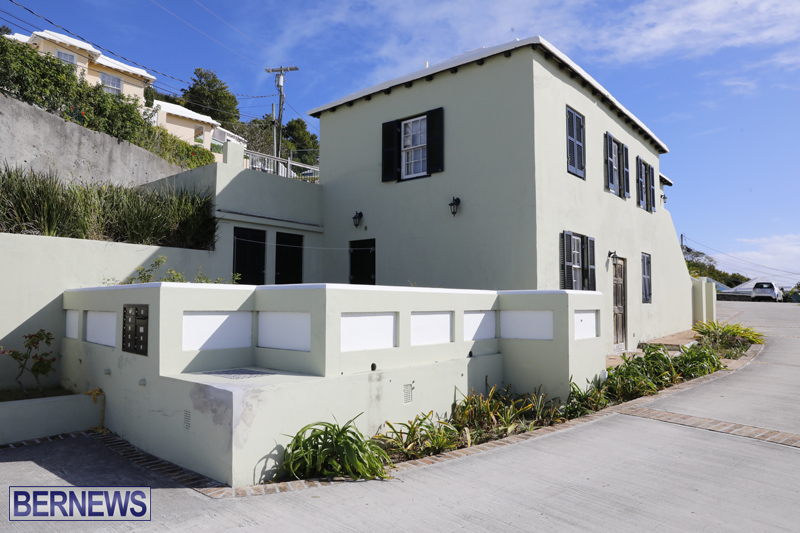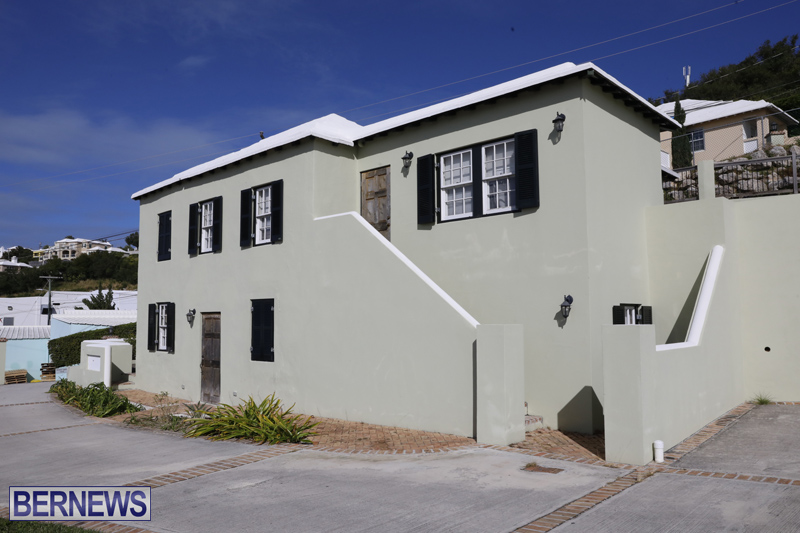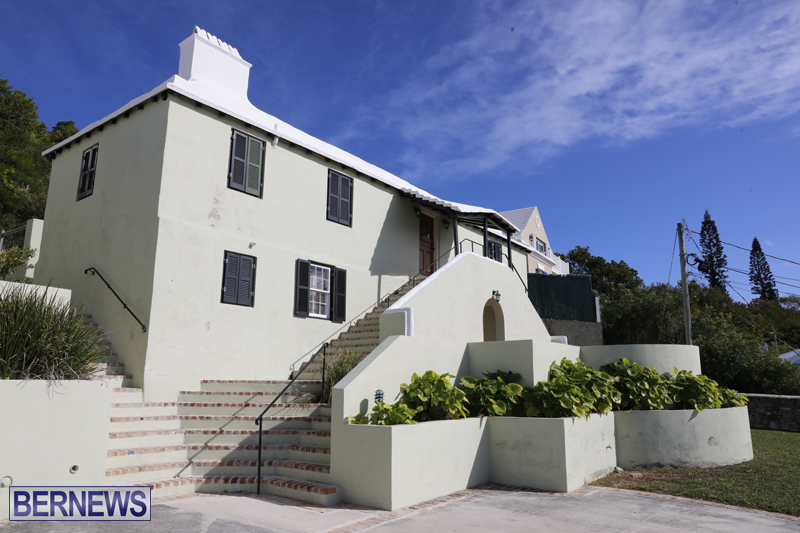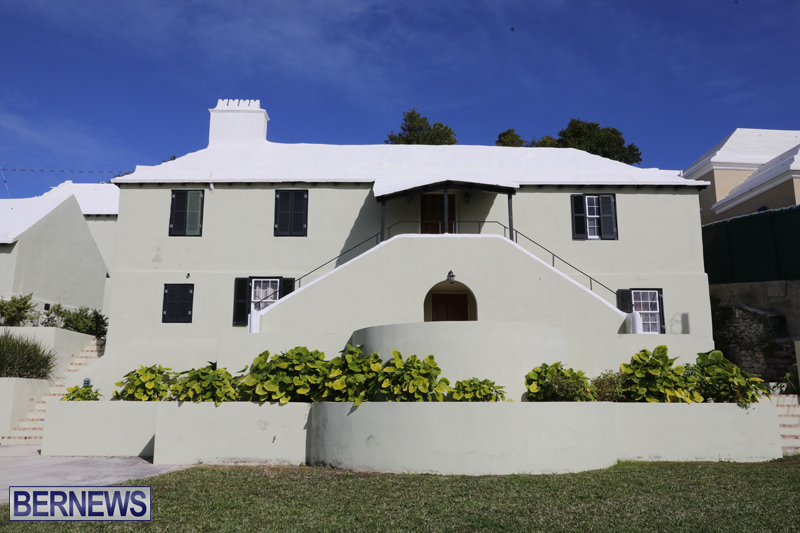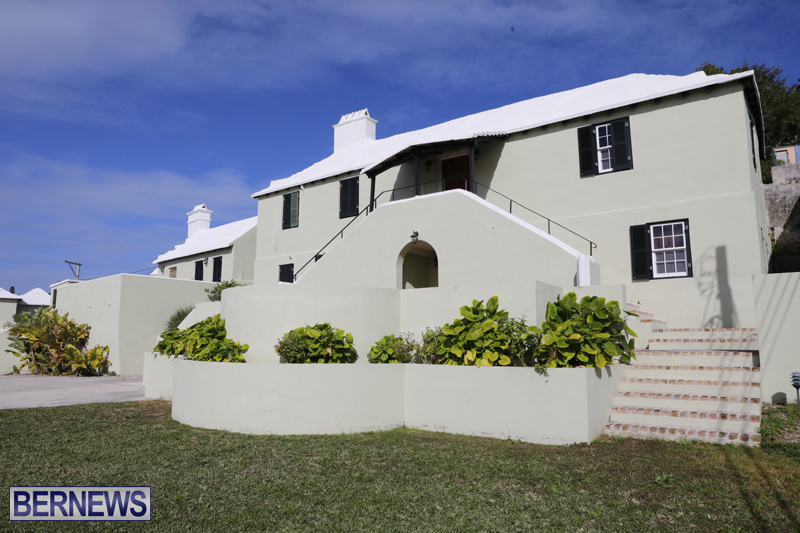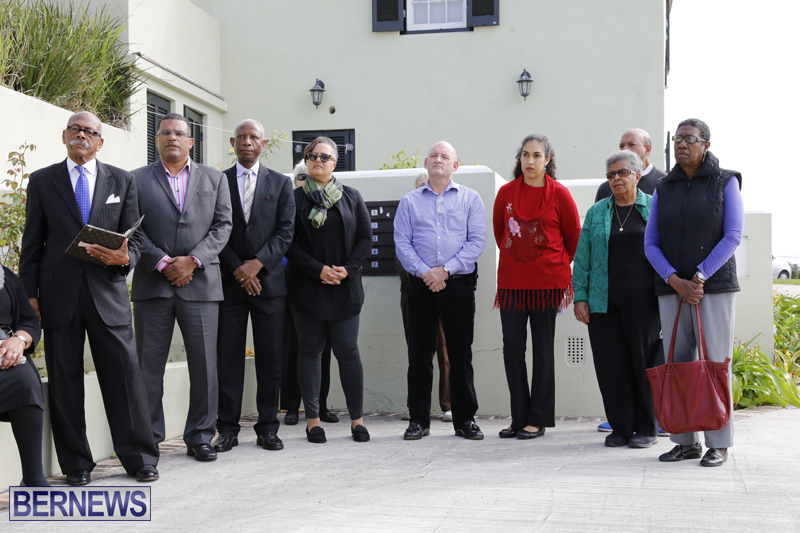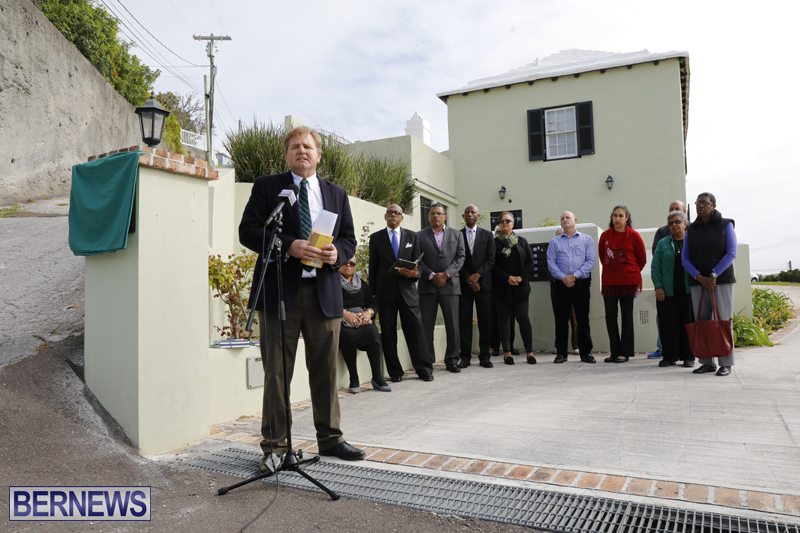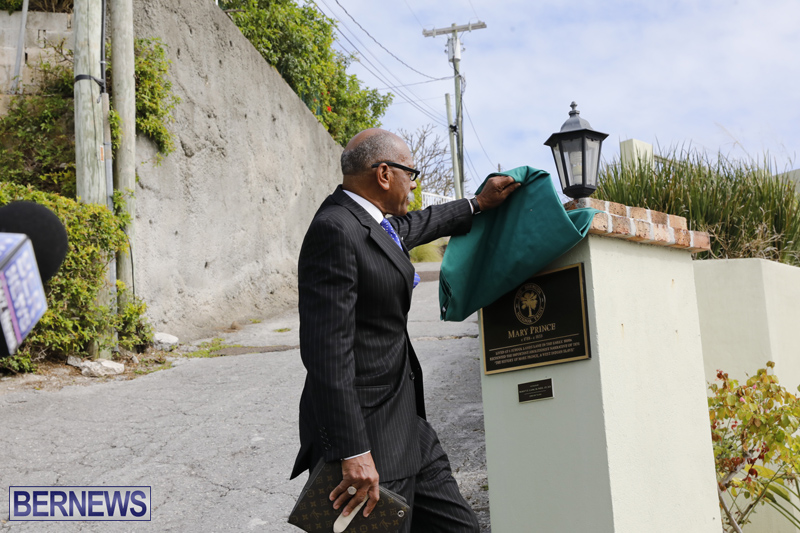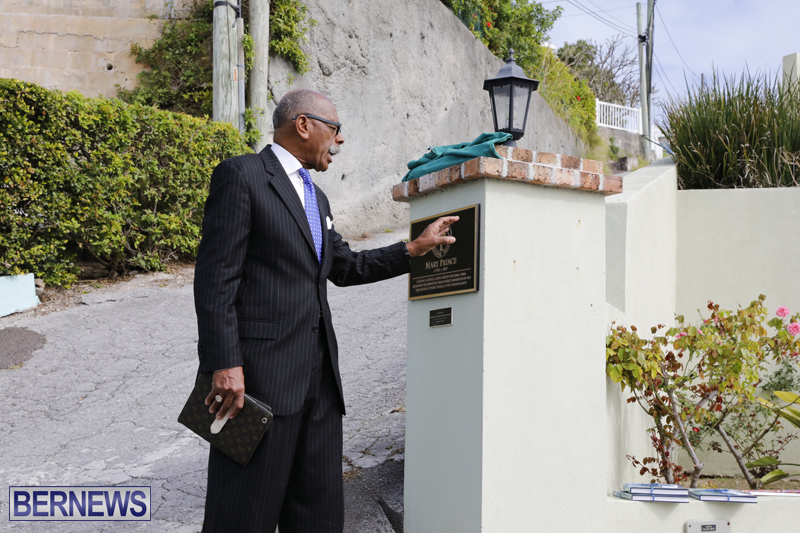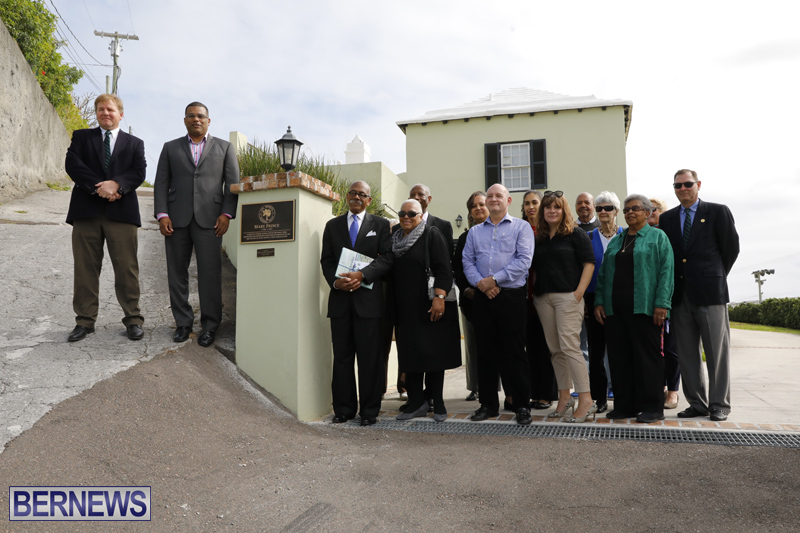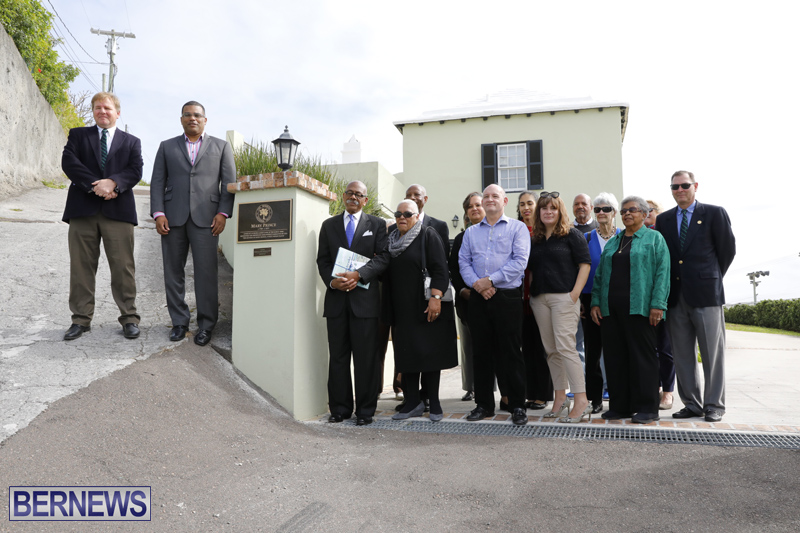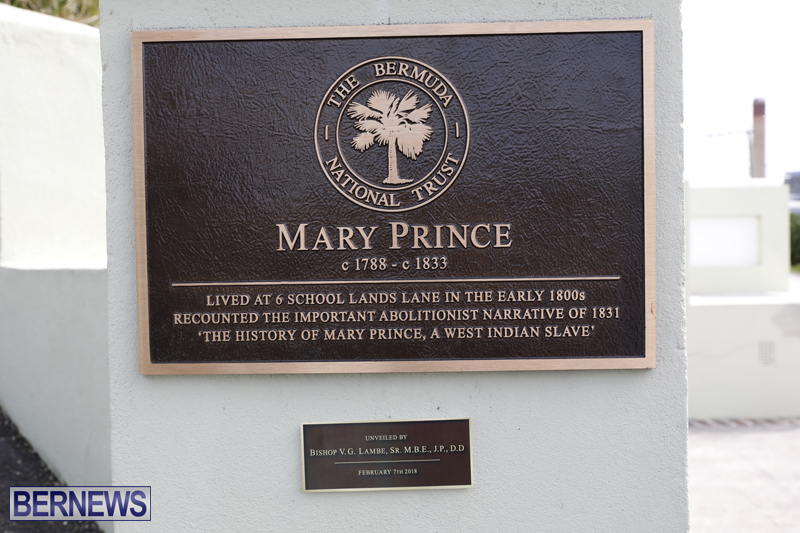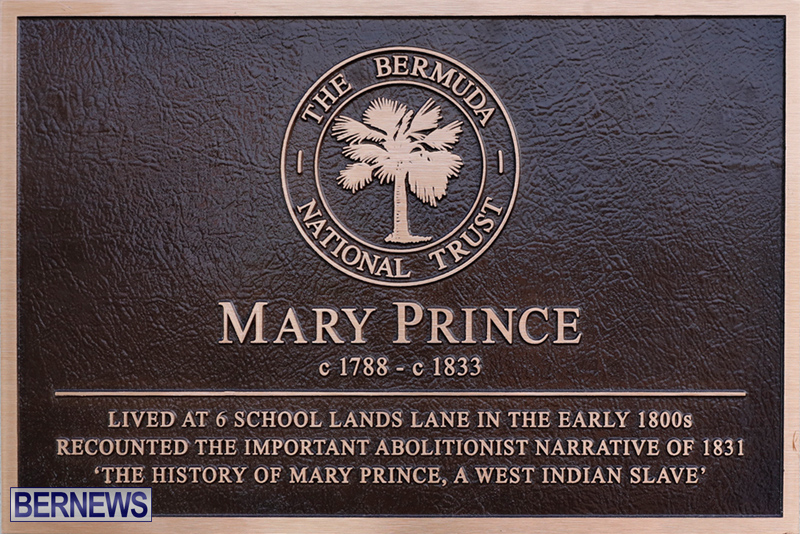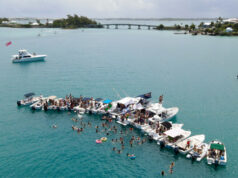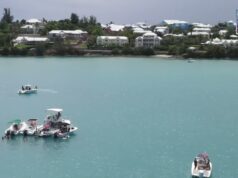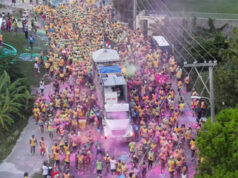In 2018, a plaque was unveiled at School Lands Cottages — where Mary Prince once lived — with Bishop Vernon Lambe unveiling the BNT-commissioned plaque, saying it serves as a reminder of her “invaluable contribution towards freedom.”
The BNT commissioned the plaque to commemorate her life and accomplishments, and BNT Director Bill Zuill said the plaque will serve as a permanent reminder of her life, noting that her book helped to bring about the end of slavery.
In naming Mary Prince a Bermuda National Hero back in 2012, the Government said, “She was the first black woman to publish a book about the brutality of slavery. Mary Prince’s book ‘The History of Mary Prince’ published in 1831, is significant because it was instrumental in helping to dismantle slavery in Bermuda and the Caribbean.
“According to biographical records, it was the first account of the life of a black woman to be published in the UK. A first-hand description of the brutalities of enslavement, released at a time when slavery was still legal in the British Caribbean colonies and Bermuda, it had a galvanising effect on the anti-slavery movement. Mary Prince spoke of slavery with the authority of personal experience.”
Her book is the only first-hand account of slavery by a Bermudian the Government noted, and she is regarded internationally as an unsung heroine of the abolition movement.
“Oh the horrors of slavery,” Ms Prince wrote in her book. “How the thought of it pains my heart! But the truth ought to be told of it; and what my eyes have seen I think it is my duty to relate; for few people in England know what slavery is.
“I have been a slave, I have felt what a slave feels, and I know what a slave knows; and I would have all the good people in England to know it too, that they may break our chains, and set us free.”
“How can slaves be happy when they have the halter round their neck and the whip upon their back? And are disgraced and thought no more of than beasts? And are separated from their mothers, and husbands, and children, and sisters, just as cattle are sold and separated? Is it happiness for a driver in the field to take down his wife or sister or child, and strip them, and whip them in such a disgraceful manner?”
While unveiling the plaque at the School Lands Lane property, Bishop Lambe said, “We shall never forget what she has done for people who were in slavery. Now, we stand in freedom, and to declare this plaque to be viewed by all and to celebrate Mary Prince.”


